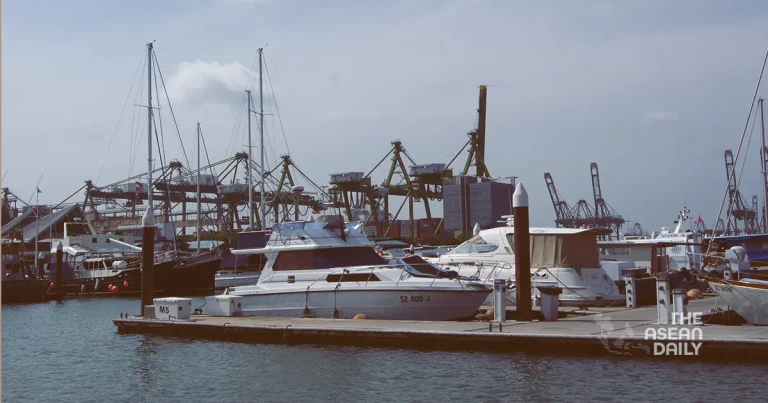5-7-2024 (SINGAPORE) Singapore’s yacht charter industry finds itself in choppy waters, hemorrhaging losses in the wake of the recent oil spill that occurred nearly three weeks ago. Operators are scrambling to stay afloat, resorting to lowering boat rates and leveraging social media to lure back customers. However, these measures are proving inadequate to stem the tide of losses inundating the sector.
This grim reality unfolds even as government agencies formulate rental deferral measures to buoy businesses grappling with the aftermath of the incident, as announced by Minister for Sustainability and the Environment, Grace Fu, on Tuesday.
On June 14, a Netherlands-flagged dredger collided with a Singapore-flagged bunker vessel at Pasir Panjang Terminal, resulting in an oil spill that sullied the surrounding waters. The spill left its indelible mark on several beaches along Singapore’s southern coastline, with the marinas at Sentosa and Keppel Bay among the hardest hit areas. In the immediate aftermath, a deluge of cancellations for boat charters swiftly ensued.
Daniel Ong, the owner of a superyacht docked at Sentosa’s Marina One, lamented, “I have easily about 10 charters being cancelled in the first two weeks, amounting to roughly S$80,000 (US$59,000).” Compounding the financial strain, the oil spill also stained the boats themselves.
In an effort to mitigate his losses, Ong plans to compile invoices from these cancelled bookings before filing a claim with the Singapore-flagged bunker tanker and his private insurer.
Zheng Libin, the owner of a yacht berthed at Keppel Bay, has taken a different approach, opting to absorb the loss incurred rather than seeking compensation. “The concern is if we were to do a claim, in the future they may increase our premium,” she explained. “And of course, filing insurance claims may not be so straightforward, and we may need to wait for maybe months or even a year for the claims to come in.”
The plight of these seaside businesses echoes the fears previously voiced about their inability to weather a three-month hiatus and a potentially protracted compensation process.
While boat charters are now permitted to sail out to sea, owners report a marked slowdown in demand for their services. They attribute this slump to a lingering stigma among customers that the surrounding waters remain tainted.
This drop in demand has made it increasingly challenging for owners to cover the exorbitant berthing fees for these yachts, which can soar into the thousands of dollars.
Owners are pinning their hopes on further assistance to help them weather this storm, while simultaneously exploring alternative avenues to generate revenue and keep their businesses afloat.
“We have to do some promotion to encourage charters to come back, or even drop prices easily by 30 per cent or so to help push through this period of time,” Ong stated.
Zheng echoed a similar sentiment, saying, “Instead of the chance to leave the marina, we can still carry out activities on board. So we have a KTV set, we play some poker cards, then we carry on with the barbecue and still do a potluck.”




